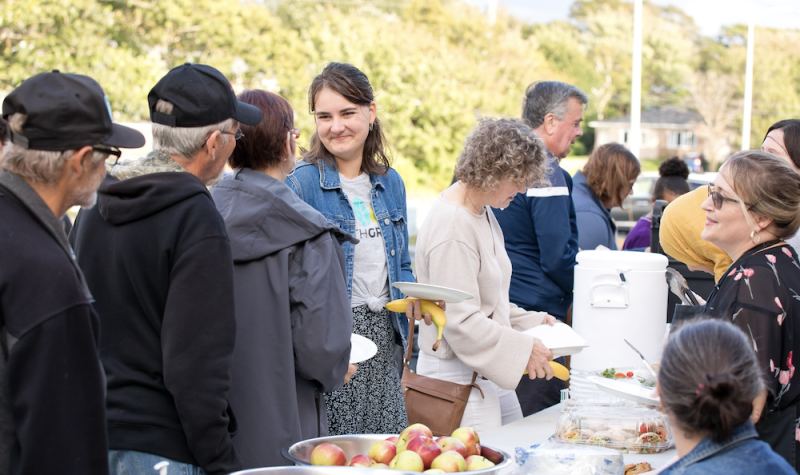Nova Scotia received the only failing grade on the Food Bank Canada’s Poverty Report Card. The province received an "F," the lowest grade in the country.
The Poverty Report Card gives a letter grade in 13 different indicators of poverty and an overall grade for each province. Nova Scotia scored an F in nine of the 13 indicators such as food insecurity, poverty rate and legislative progress.
"[Nova Scotia] has not only one of the highest unemployment rates in the country but also one of the highest food insecurity and poverty rates," the report says.
Wendy Fraser, executive director of The North Grove, says she is not surprised by the province's failing grade. The North Grove is a non-profit organization that offers community meals as well as an affordable food market where they sell produce from their community garden at a reduced price.
“People are having to choose between paying their rent and buying food,” Fraser says. “Rent becomes the first priority to make sure they don’t become homeless.”
Because of this The North Grove is seeing an increase of people at community meals and the affordable food market.
“There's been a 135 per cent increase in people accessing the affordable market,” Fraser says.
Rent in Nova Scotia went up 8.3 per cent in 2022 and 7 per cent in the first half of 2023. Food costs increased by 7 per cent and the Market Basket Measure food basket increased by 11 per cent.
“In the first two months of the year, we spent 50 per cent of our budget,” Fraser says. “So even for us to give out food, the costs have gone so high, that it’s a challenge.”
Nova Scotia's high unemployment rate means more people are relying on social assistance programs.
The Food Bank report found that, "In Nova Scotia, 12 per cent of the population receives EI, which is double the national average. Nearly a quarter (23 per cent) of the population receives social assistance, which is the highest among the provinces."
Nova Scotia received an F in the Legislative Progress category which the report says, “Although the government has made some policy strides, it has not introduced a poverty reduction plan since 2009.”
Fraser says the province needs to raise the minimum wage to a living wage and increase basic financial supports offered to people on assistance.
“From my perspective, there has been very little increase over the years,” she says.
Listen to the story below:


